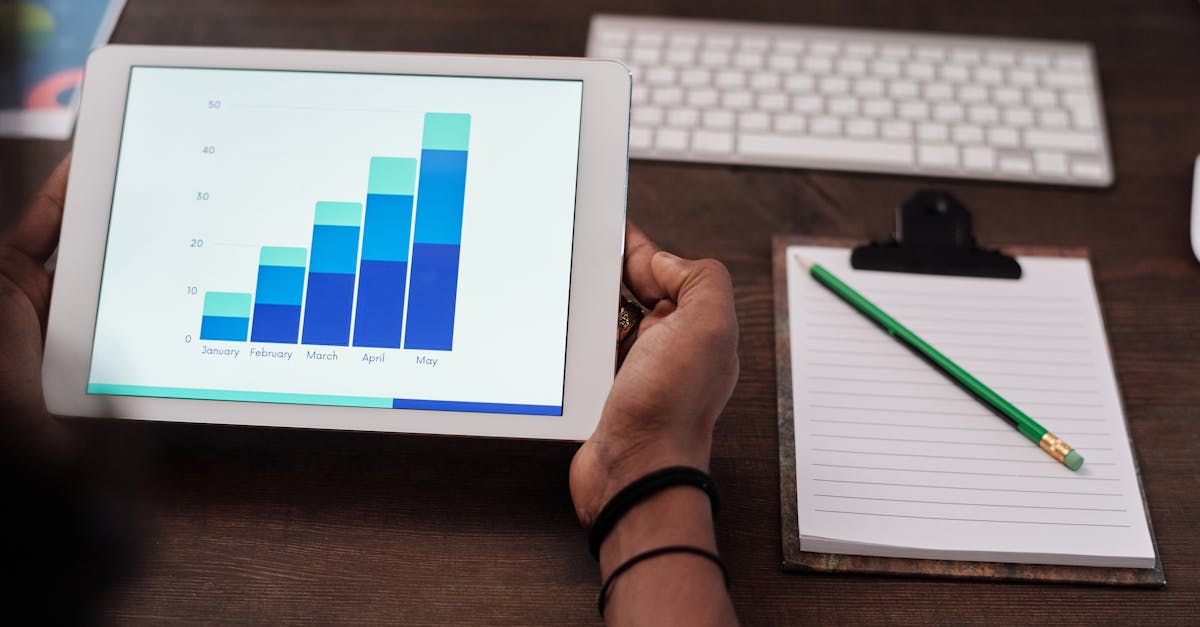
Table Of Contents
Mobile Optimization for Local SEO
Mobile optimisation is essential for local SEO as more users depend on their mobile devices to search for nearby businesses. A responsive website design ensures that information is easily accessible on smaller screens, improving user engagement. Fast load times and intuitive navigation are also crucial, as these factors contribute to a better user experience and higher search engine rankings. Businesses should prioritise mobile-friendly layouts to enhance visibility in local search results.
Additionally, incorporating localised content can significantly boost mobile SEO efforts. This includes using relevant keywords that reflect local intent and providing location-specific information such as addresses and contact details. Local SEO strategies should also focus on integrating Google My Business, which plays a vital role in helping businesses appear prominently in mobile search results. Ensuring consistency across platforms further solidifies local presence, making it easier for potential customers to find and connect with the business.
Enhancing User Experience on Mobile Devices
Mobile devices have become the primary means for users to search for local information. This shift necessitates that businesses optimise their websites for mobile use. A responsive design ensures that users can easily navigate your site regardless of the device they use. Fast loading times are crucial in retaining visitors, as slow sites can lead to high bounce rates. Local SEO strategies should prioritise these aspects to enhance user satisfaction and drive more local traffic.
Ensuring content is concise and relevant also plays a significant role in improving mobile user experience. Users often seek quick answers, so providing clear and easy-to-read information is essential. Incorporating local keywords can help cater to specific search intents, making it more likely for your business to appear in local search results. By focusing on usability and relevant content, businesses can create a more engaging experience that aligns with their Local SEO efforts.
Local Link Building Strategies
Local link building strategies play a crucial role in enhancing a business's visibility in local search results. Engaging with nearby businesses, community organisations, and local influencers can help establish valuable connections. By collaborating on events, sponsorships, or co-marketing initiatives, businesses can secure quality backlinks to their websites. These links not only drive referral traffic but also signal to search engines that the business is a relevant player in its local market.
Establishing relationships with local businesses is essential for effective local link building. Approaching other businesses for partnerships can create mutually beneficial opportunities. Participating in community events or local online forums can also increase visibility. These strategies contribute to a more robust local online presence, elevating the overall impact of local SEO efforts. Building a network of local connections fosters trust and credibility, both vital factors in attracting local customers.
Establishing Relationships with Local Businesses
Building strong relationships with local businesses is essential for effective Local SEO. Collaborating with nearby enterprises can lead to shared marketing efforts and cross-promotions that enhance visibility in the community. When local businesses support each other, they create a network that strengthens their presence online and offline. This cooperation can also encourage backlinks from each other's websites, a crucial component of any Local SEO strategy.
Networking opportunities, such as local business events and community initiatives, provide excellent platforms for forging these connections. Engaging with local chambers of commerce or industry groups can facilitate these interactions. By participating in such events, businesses can showcase their commitment to the community while fostering partnerships that directly benefit their Local SEO efforts. These alliances often result in mutual support that boosts rankings in local search results.
The Impact of Social Media on Local SEO
Social media has become a critical component of local SEO strategies. Platforms like Facebook, Instagram, and Twitter allow businesses to engage directly with their local audience. These interactions can enhance brand visibility and foster community relationships. Additionally, social profiles often rank well in search engine results, providing a valuable avenue for local consumers to discover businesses. Optimising social media profiles with relevant keywords can further improve local search rankings.
Moreover, local SEO benefits significantly from user-generated content and reviews shared on social media. When customers post about their experiences, it creates authentic content that can boost a business's online reputation. Encouraging satisfied customers to share their experiences not only increases organic reach but also builds trust with potential clients. Overall, a strong social media presence can complement other local SEO efforts, resulting in a more robust online footprint.
Leveraging Social Platforms for Local Engagement
Social media platforms serve as valuable tools for enhancing local engagement, allowing businesses to connect directly with their community. By sharing relevant content and updates, organisations can attract the attention of local customers. Engaging visuals, localised promotions, and event announcements can make social media posts more appealing. This interactive approach encourages discussions and strengthens customer relationships, which is vital for local SEO success.
Harnessing platforms such as Facebook, Instagram, and Twitter can also amplify a brand's presence in local search results. Encouraging customers to leave reviews and share their experiences creates a network of authentic interactions. These actions contribute positively to local SEO, as search engines consider social signals and customer engagement when ranking businesses. Regularly monitoring and responding to feedback on these platforms further demonstrates a commitment to customer service and fosters a loyal community.
FAQS
What are the three pillars of local SEO?
The three pillars of local SEO are mobile optimisation, local link building, and leveraging social media for local engagement.
Why is mobile optimisation important for local SEO?
Mobile optimisation is crucial because a significant number of users search for local businesses on their mobile devices. A well-optimised mobile site enhances user experience, leading to higher engagement and conversion rates.
How can local link building benefit my business?
Local link building helps establish your business's authority and relevance in the local market. By creating relationships with other local businesses and gaining backlinks, you can improve your visibility in local search results.
What role does social media play in local SEO?
Social media plays a key role in local SEO by helping businesses engage with their local audience, share content, and drive traffic to their website. Active social media presence can also enhance brand awareness and customer loyalty.
How can I enhance user experience on mobile devices?
To enhance user experience on mobile devices, ensure your website is mobile-friendly with fast loading times, easy navigation, and responsive design. Additionally, provide clear calls to action and relevant information for local searches.

















































